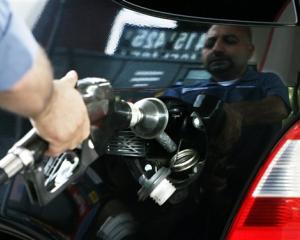Global oil prices are up about 30% since late January, largely building on concerns about Middle East supply constraints such as the anti-Government rebellion in Libya, where production has been halved.
Fuel prices have risen three times during the past 10 days, hitting $2.16 for 91 octane and $2.22 for premium at city pumps yesterday - just shy of the record $2.19 per litre for 91 struck in July 2008.
A visiting oil analyst from the United States has speculated the complete loss of Libyan oil production could push crude to $US140 ($NZ189)-$US150 a barrel, prompting a further 40c per litre rise in New Zealand.
ASB chief economist Nick Tuffley said yesterday whether prices went up or down in coming weeks depended on what happened in Libya, and subsequent effects on supply.
"But to go so high [$US140-$US150] and so quickly, there would have to be a significant disruption to see those sorts of prices."
He said the New Zealand prices were compounded by the loss of cushioning from the weakened kiwi - which was at more than US82c in July 2008 compared to US73.70 yesterday - the rise in GST and adjusted excise taxes.
The kiwi has fallen 3.3% against the greenback since the earthquake hit Christchurch on February 22. In New Zealand, further pump price pressure will be reflected in increasing transport costs, which will be passed to consumers in rising food prices.
While global spot oil prices were at the record $US147 in July 2008, the strength of the New Zealand dollar at the time cushioned pump prices and increases stopped at $2.19. This could have been 12c-15c higher if the kiwi had been weak.
Spot oil prices hit a high yesterday in the United Kingdom of $US114 a barrel and $US104 in the United States, but the kiwi's weak trading against the greenback has compounded this week's fuel rise to $2.22.
About half the cost of a litre of fuel is attributed to crude oil prices, with the next largest slice, about 36%, taken by the Government through a variety of levies and taxes.
Automobile Association petrolwatch spokesman Mark Stockdale said recent rising crude prices had amounted to a 13c-a-litre rise, with the oil companies staggering the additional rises in the pump costs, the last being a 5c rise on Tuesday night.
Craigs Investment Partners broker Peter McIntyre said that among the many "machinations" that contributed to fuel prices, a "big contributor" for New Zealand was the present weakness of the kiwi against the US greenback.
The loss of about 50% of Libya's output of sweet crude, usually about 1.5 million barrels a day, was not being taken up at present by other Middle East producers, he said.







